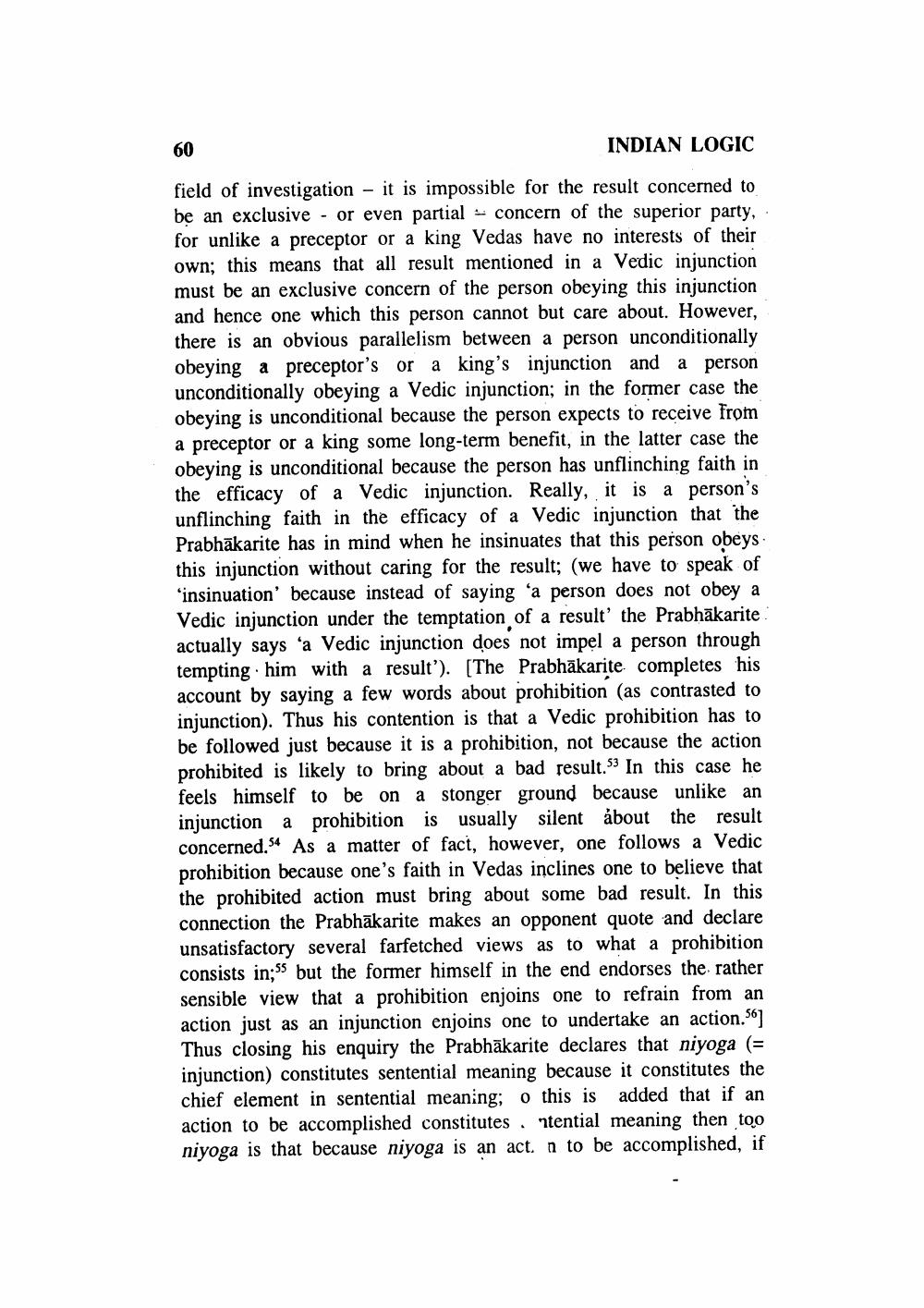________________
60
INDIAN LOGIC
field of investigation - it is impossible for the result concerned to be an exclusive - or even partial – concern of the superior party, for unlike a preceptor or a king Vedas have no interests of their own; this means that all result mentioned in a Vedic injunction must be an exclusive concern of the person obeying this injunction and hence one which this person cannot but care about. However, there is an obvious parallelism between a person unconditionally obeying a preceptor's or a king's injunction and a person unconditionally obeying a Vedic injunction; in the former case the obeying is unconditional because the person expects to receive from a preceptor or a king some long-term benefit, in the latter case the obeying is unconditional because the person has unflinching faith in the efficacy of a Vedic injunction. Really, it is a person's unflinching faith in the efficacy of a Vedic injunction that the Prabhākarite has in mind when he insinuates that this person obeysthis injunction without caring for the result; (we have to speak of 'insinuation because instead of saying 'a person does not obey a Vedic injunction under the temptation of a result' the Prabhākarite actually says 'a Vedic injunction does not impel a person through tempting him with a result'). [The Prabhākarite completes his account by saying a few words about prohibition (as contrasted to injunction). Thus his contention is that a Vedic prohibition has to be followed just because it is a prohibition, not because the action prohibited is likely to bring about a bad result. In this case he feels himself to be on a stonger ground because unlike an injunction a prohibition is usually silent about the result concerned. 54 As a matter of fact, however, one follows a Vedic prohibition because one's faith in Vedas inclines one to believe that the prohibited action must bring about some bad result. In this connection the Prabhākarite makes an opponent quote and declare unsatisfactory several farfetched views as to what a prohibition consists in;$5 but the former himself in the end endorses the rather sensible view that a prohibition enjoins one to refrain from an action just as an injunction enjoins one to undertake an action.56] Thus closing his enquiry the Prabhākarite declares that niyoga (= injunction) constitutes sentential meaning because it constitutes the chief element in sentential meaning; o this is added that if an action to be accomplished constitutes. tential meaning then too niyoga is that because niyoga is an act. a to be accomplished, if




